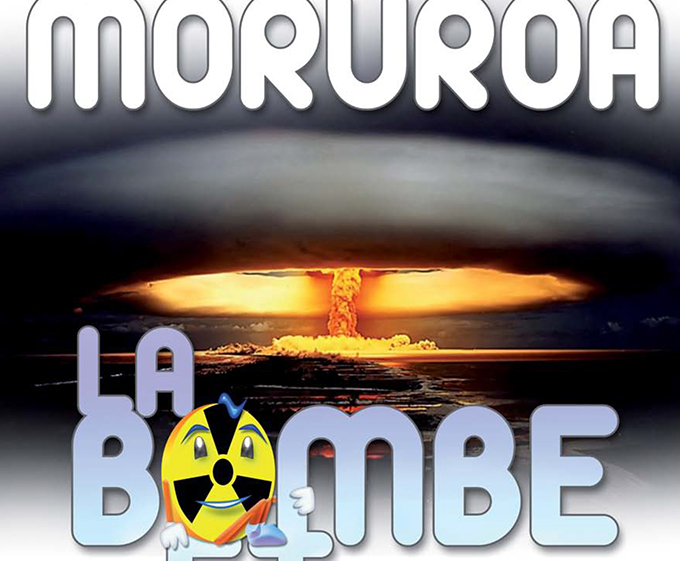
Asia Pacific Report newsdesk
The French government has denied any cover-up over radiation levels in the Pacific following its nuclear testing in the region, as state-backed discussions took place in Paris about the legacy of the explosions, reports France 24.
A two-day meeting called by French President Emmanuel Macron began on Thursday following fresh allegations that the testing from 1966 to 1996 caused hidden atmospheric and ground radiation.
“There was no state cover-up,” Genevieve Darrieusseq, junior defence minister, told the French news agency AFP yesterday in a brief comment on the sidelines of the event, where she has ruled out any official apology from France.
- READ MORE: Mā’ohi Nui’s search for nuclear justice – the French ‘reset’ button still to be reset
- Macron hosts French ‘truth and justice’ Pacific nuclear test legacy talks
- French nuclear tests: ‘I bury people nearly every day, what was our sin?’
- French nuclear tests legacy and Disclose revelations
In March, the investigative website Disclose and book Toxic created waves when it said it had analysed some 2000 pages of declassified French military documents about the nearly 200 tests carried out in French Polynesia.
Working with statistical experts and academics from Princeton University in the US, it concluded that “French authorities have concealed the true impact of nuclear testing on the health of Polynesians for more than 50 years.”
The roundtable discussions have been attended by three French ministers, as well as President Macron himself, who made no public comment after taking part on Thursday.
Edouard Fritch, the territorial president of French Polynesia, said Macron had promised to open up the military archives about the tests, a key demand from historians, and would visit Tahiti on July 25.
‘Desire to turn page’
Only records that could lead to nuclear proliferation are to remain secret.
“We felt that the president had a real desire to turn this painful page for all of us, with the resources that will need to be put in place in the future, so that Polynesians can rebuild the faith that we have always had in France,” Fritch said.
The event has met with criticism from many Polynesian politicians as well as anti-nuclear campaigners and historians, who say they have been blocked from properly investigating by state secrecy laws.
Moetai Brotherson, a supporter of independence who sits in the National Parliament representing the archipelago, refused to attend unless France apologised for the tests.
His party, the pro-independence Tavini Huiraatira, said it would organise a rival event in Tahiti on Friday.
Compensation
Over the past year, President Macron has shown a willingness to tackle historically taboo issues for France, including its bloody colonial history in Algeria and its role in Rwanda in the lead up to the 1994 genocide.
The nuclear tests remain a source of deep resentment and anger in French Polynesia, where they are seen as evidence of colonial or even racist attitudes that disregarded the lives of islanders.
The US and Britain also carried out dozens of nuclear tests in the Pacific during the Cold War arms race.
Up until now only 63 French Polynesian civilians, excluding soldiers and contractors, have received compensation for exposure to radiation from the nuclear tests, according to Disclose.
The website said it had reassessed the pollution on the Gambier Islands, Tureia and Tahiti following the six nuclear tests considered to be the most contaminating in the history of French tests in the Pacific.
It claimed that its conclusions were starkly different to those of the French Alternative Energies and Atomic Energy Commission (CEA), whose figures served as the reference for compensation for victims of the tests.
In one instance, Disclose said radioactive soil deposits on an atoll had been underestimated by more than 40 percent, while more than 100,000 people might have been contaminated in total.
Protests
France conducted 193 nuclear tests over three decades at Moruroa and Fangataufa atolls in French Polynesia until former President Jacques Chirac ended the programme in the 1996 amid an international protest campaign.
In 2016, former President François Hollande acknowledged during a trip to the region that the tests had “an impact” on health and the environment and promised to revamp the compensation process.
From 1960 to 1966, France also carried out 17 nuclear tests at desert sites in Algeria, where campaigners continue to press for compensation and clean-ups.













































